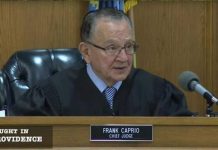Justin Trudeau resigns as Canada’s Prime Minister after nine years in the office, bowing to increasing pressure from within his Liberal Party and declining public support. His decision follows mounting internal challenges and external criticism, signaling a notable moment for Canadian politics. Trudeau announced he would remain in office until his party selects a new leader, with parliament prorogued until March 24.
Justin Trudeau Resigns Under Growing Party Pressure
Facing intense scrutiny from his party and Canadians alike, Justin Trudeau resigns, bringing an end to a tenure marked by both progressive milestones and deep controversies. His leadership began in 2015 with promises of “Sunny Ways,” resulting in landmark achievements such as gender-balanced cabinets, legalizing recreational cannabis, and implementing national child benefits. However, cracks began to show as his government faced multiple scandals, including corruption allegations and backlash over vaccine mandates. Recent resignations, such as that of his ally Chrystia Freeland, highlighted growing internal rifts. Trudeau himself admitted during his resignation speech, “If I’m having to fight internal battles, I cannot be the best option in the next election.”
A Mixed Legacy and the Challenges Ahead
While Trudeau’s tenure saw advancements like a national carbon tax and progress in Indigenous reconciliation, economic strains such as skyrocketing housing costs and inflation overshadowed his later years. Public discontent reached a boiling point, as reflected in his approval ratings plummeting to 22%. The opposition, led by Conservative leader Pierre Poilievre, criticized Trudeau’s policies, stating, “Liberals want to trick voters by swapping faces but keeping the same agenda.” Meanwhile, Trudeau’s resignation reignites debates about Canada’s future. Bloc Quebecois leader Yves-François Blanchet has called for an early election following the Liberals’ leadership transition.
As Trudeau steps aside, his legacy remains a blend of transformative achievements and polarizing controversies, marking the end of an era in Canadian politics. The Liberal Party now faces the critical task of selecting a leader to guide them through the next election and beyond.
Read more: Canada Bans TikTok on Government Devices Over Security Concerns


























